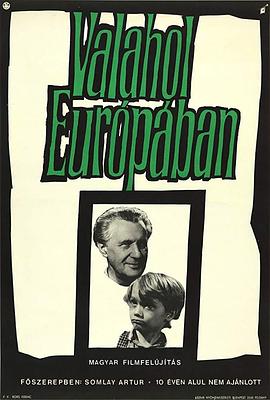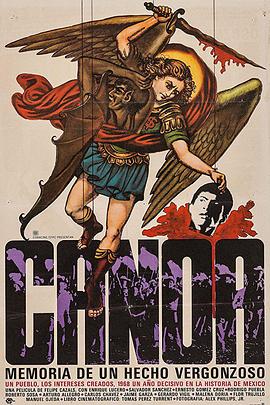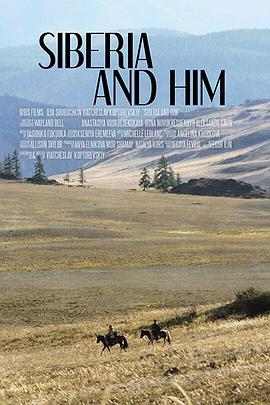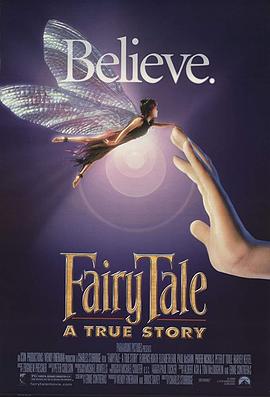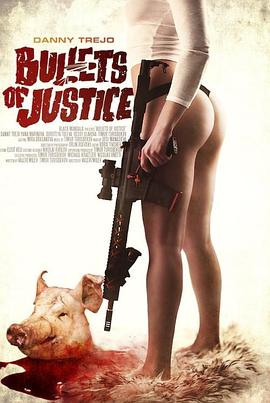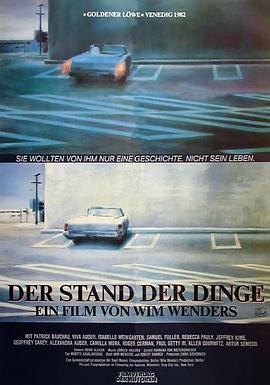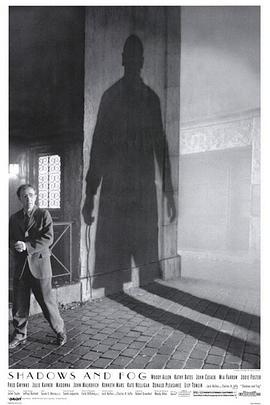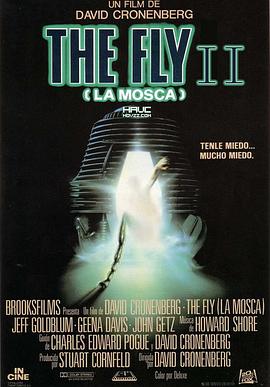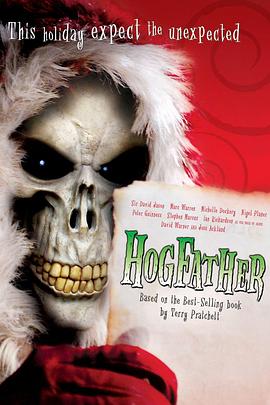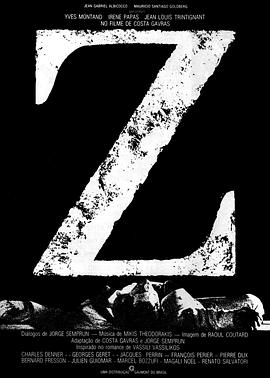-
备注:已完结
类型:剧情片
主演:Artúr Somlay Miklós Gábor Zsuzsa Bá
语言:其它
年代:未知
简介:Somewhere in the remote region, the war ends. In the midst of ruined cities and houses in the streets, in rural hamlets, everywhere where people still live, are children who have lost their homes and parents. Abandoned, hungry, and in rags, defenseless and humiliated, they wander through the world. Hunger drives them. Little streams of orphans merge into a river which rushes forward and submerges everything in its path. The children do not know any feeling; they know only the world of their enemies. They fight, steal, struggle for a mouthful of food, and violence is merely a means to get it. A gang led by Cahoun finds a refuge in an abandoned castle and encounters an old composer who has voluntarily retired into solitude from a world of hatred, treason, and crime. How can they find a common ground, how can they become mutual friends The castle becomes their hiding place but possibly it will also be their first home which they may organize and must defend. But even for this, the price will be very high. To this simple story, the journalist, writer, poet, scriptwriter, movie director, and film theoretician Béla Balázs applied many years of experience. He and the director Géza Radványi created a work which opened a new postwar chapter in Hungarian film. Surprisingly, this film has not lost any of its impact over the years, especially on a profound philosophical level. That is to say, it is not merely a movie about war; it is not important in what location and in what period of time it takes place. It is a story outside of time about the joyless fate of children who pay dearly for the cruel war games of adults. At the time it was premiered, the movie was enthusiastically received by the critics. The main roles were taken by streetwise boys of a children's group who created their roles improvisationally in close contact with a few professional actors, and in the children's acting their own fresh experience of war's turmoil appears to be reflected. At the same time, their performance fits admirably into the mosaic of a very complex movie language. Balázs's influence revealed itself, above all, in the introductory sequences an air raid on an amusement park, seen in a montage of dramatic situations evoking the last spasms of war, where, undoubtedly, we discern the influence of classical Soviet cinematography. Shooting, the boy's escape, the locomotive's wheels, the shadows of soldiers with submachine guns, the sound of a whistle—the images are linked together in abrupt sequences in which varying shots and expressive sharp sounds are emphasized. A perfectly planned screenplay avoided all elements of sentimentality, time-worn stereotypes of wronged children, romanticism and cheap simplification. The authors succeeded in bridging the perilous dramatic abyss of the metamorphosis of a children's community. Their telling of the story (the scene of pillaging, the assault on the castle, etc) independently introduced some neorealist elements which, at that time, were being propagated in Italy by De Sica, Rossellini, and other film artists. The rebukes of contemporary critics, who called attention to formalism for its own sake have been forgotten. The masterly art of cameraman Barnabás Hegyi gives vitality to the poetic images. His angle shots of the children, his composition of scenes in the castle interior, are a living document of the times, and underline the atmosphere and the characters of the protagonists. The success of the picture was also enhanced by the musical art of composer Dénes Buday who, in tense situations, inserted the theme of the Marseilaise into the movie's structure, as a motive of community unification, as an expression of friendship and the possibility of understanding. Valahol Europaban is the first significant postwar Hungarian film. It originated in a relaxed atmosphere, replete with joy and euphoria, and it includes these elements in order to demonstrate the strength of humanism, tolerance, and friendship. It represents a general condemnation of war anywhere in the world, in any form.
-
-
备注:已完结
类型:恐怖片
主演:哈威·凯特尔 杰森萨尔基 彼得·奥图尔 Guy Witcher 约瑟夫
导演:查尔斯·斯特里奇
语言:英语
年代:未知
简介:儿子约瑟夫的死亡让杜勒一家人陷入了无尽的悲痛之中,父亲整日里紧锁眉头,而母亲则坚持相信儿子并没有离去,而是会化身为精灵再度回到她的身边。压抑的家庭气氛让小女儿西朗特倍感孤独,没有人关注她的感受。一天,表妹弗朗西斯(Elizabeth Earl 饰)暂时住进了西朗特的家中,她的父亲即将奔赴战场。 弗朗西斯的到来让西朗特终于重拾了快乐,两人成天待在一起,消磨着彼此的时间。约瑟夫生前十分沉迷于对于精灵的研究,甚至为精灵们搭了一座小小的城堡。在弗朗西斯的强烈要求下,西朗特带着她进入了花园,开始寻找精灵的踪迹。让两人没有想到的是,她们竟然真的找到了精灵,不仅如此,还拍下了照片。
-
备注:已完结
类型:喜剧片
主演:迈克尔·柯比 伍迪·艾伦 戴维·奥格登·施蒂尔斯 詹姆斯·瑞布霍恩 维
导演:伍迪·艾伦
语言:英语
年代:未知
简介:Kleinman(Woody Allen饰)住在一个小镇上,他是一个小小的不起眼的记账员。一天夜里,他被邻居们叫醒,邻居们想请他帮忙把一个在小镇上杀了好多个人的陌生人抓起来。但当他穿好衣服出门准备加入邻居们擒贼的队伍中去的时候,他发现,邻居们在一时之间好像都消失了。与此同时,一个马戏团来到了镇上,展开马戏表演。Paul和Imy是其中的两个表演者。经过一场斗殴,Imy在一个晚上离开了马戏团。渐渐的,她发现了Kleinma一个人表情狰狞地蜷缩在角落里。
-
备注:已完结
类型:科幻片
主演:艾瑞克·斯托罗兹 Eric Stoltz 达芙妮·祖尼加 Lee Ri
语言:英语
年代:未知
简介:这部拍摄于1989年版的《变蝇人2》是1986年版《变蝇人》的续集,影片承接第一集母亲维尼卡怀上赛斯孩子的伏笔,当她产下一枚蝇蛹时被当场吓死。当局的科研机关巴托工业园收养了苍蝇之子马丁·布朗多(艾瑞克·斯托罗兹 Eric Stoltz饰),由巴托工业的老总巴托先生(约翰·盖兹 John Getz饰)抚养。巴托先生密切监视着马丁的一举一动,表面上把马丁视如己出,实则却把他当作研究对象,暗地里用摄像机记录下他所有的生活过程,让马丁研究他父亲生前的时空传送装置。马丁看上去英俊帅气,无异于常人,除了的惊人的生长速度和超人的天资才能。不久,马丁就与美丽的贝斯·洛根(达芙妮·祖尼加 Daphne Zuniga饰)坠入爱河。可隐藏在马丁体内的变异染色体突然苏醒,等待马丁的是变成下一个“苍蝇人”的恐怖噩耗。
-
备注:已完结
类型:剧情片
主演:大卫·杰森 马克·沃伦 米歇尔·道克瑞 大卫·沃纳 托尼·罗宾逊 奈格
导演:瓦蒂姆·吉恩
语言:英文
年代:未知
简介:故事发生在一个名为迪斯科的异想世界之中。一年一度的Hogswatchnight即将到来,这是这个世界里最为盛大和隆重的一个节日。每逢此佳节到来,圣猪老爹(多米尼克·波雷里 Dominic Borrelli 饰)都会骑着野猪拉的雪橇,挨家挨户满足孩子们许下的愿望。然而这一次,圣猪老爹却似乎遇到了麻烦。 神秘组织派出了杀手Teatime(马克·沃伦 Marc Warren 饰)追杀圣猪老爹,因为后者的存在严重扰乱了这个循规蹈矩的世界的规律。Teatime绑架了牙仙(西妮德·马修斯 Sinead Matthews 饰),令所有孩子忘记了圣猪老爹的存在。在这个节骨眼上,死神(伊安·理查德森 Ian Richardson 饰)挺身而出接替了圣猪老爹的工作,与此同时,死神的孙女苏珊(米歇尔·道克瑞 Michelle Dockery 饰)也在努力的找寻着圣猪老爹的...
